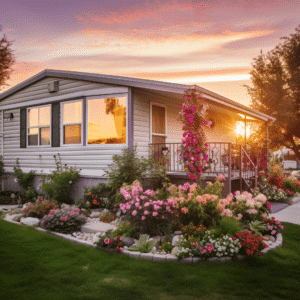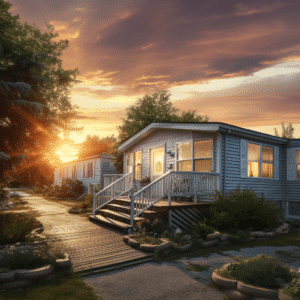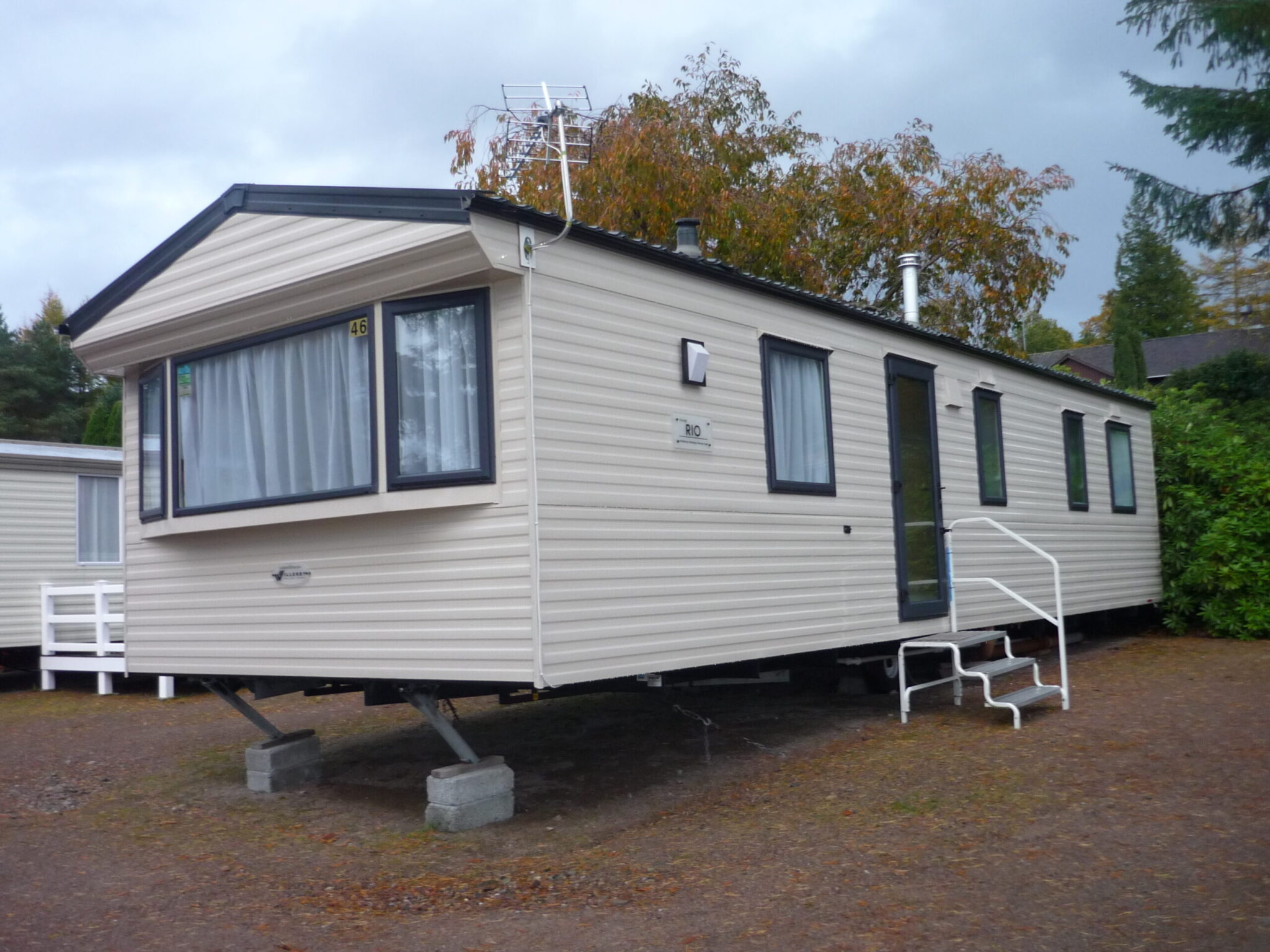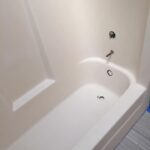Manufactured Home Lifespan, Are you planning to build or buy a manufactured home? If so, there are several aspects that you need to consider. One of the most crucial ones is the longevity of the manufactured home.
Don’t spend your hard-earned money on something that won’t hold up for long enough. Your manufactured home should endure just as long as a regular home. This article provides information on manufactured homes by detailing how long they can endure and what you can do to extend their lifespan.
Table of Contents
How Long Do Manufactured Homes Last?

A manufactured home should endure 30 to 50 years if everything is done correctly during installation. The building must adhere to all building codes for this to occur. You must thus collaborate with an expert to ensure they execute a fantastic job for you.
You should be aware that the duration of 30 to 50 years is not fixed. If you do the necessary maintenance, your house will survive longer. Also, the housing industry is constantly changing. Therefore, your manufactured home may survive longer if it is more modern.
Determinants for Your Manufactured Home Lifespan
The Quality of The Materials Utilized
Typically, metal and wood are used to construct manufactured homes. These are the materials that are also utilized to build regular homes. As a result, when these materials are employed to make your manufactured home, you shouldn’t have many problems.
Metal roofing, aluminum siding, and appropriate flooring are all examples of manufactured home quality materials. Such a home should survive longer than one built with inferior components, such as plywood for the siding.
The Building Process
A manufactured home should be built with the utmost care if it is intended to be permanent so that you have the most significant potential result. Some manufactured houses, though, are created for temporary purposes. As a result, the manufacturers don’t consider quality home construction.
The setting is one part of the construction process. A manufactured home must be erected above ground to last a long time. If it is ground-set, the moisture will reach the home directly and cause great harm.
Installation Techniques
The initial installation is crucial to ensure that your manufactured home lasts as long as possible. Incorrect initial installation is the root cause of many issues with manufactured homes.
The installation should not be handled by people who are not experts because it is technical. Only professionals should be trusted with this work. To ensure the house is up to code and that any issues are fixed as quickly as possible, you should also consider hiring an experienced inspector who is not linked to the contractors.
Foundation
The condition of the foundation significantly influences the durability of your manufactured home. To guarantee this is the case, use steel as the foundation metal.
How to Extend the Lifespan of Your Manufactured Home
To extend the life of your manufactured home, you must take a few steps. This section of the article examines just that.
Ensure Proper Maintenance of Your Manufactured Home
Proper maintenance of your manufactured home will help it live a long time. As a result, you should seal any gaps that could let water in and often paint the exterior.
Choose the Correct Location
The correct location, particularly those with low humidity levels, can stop construction materials like wood and warp from deteriorating over time.
Stop Plumbing Leaks
Water damage must be prevented at all costs because it might harm your manufactured home’s structure. Ensure the house is ventilated correctly and care for any plumbing issues to avoid such damages.
Why Do Some People Think Manufactured Homes Only Last a Few Years?
Over the years, there has been controversy over the idea that mobile homes are less durable than other housing types.
This is motivated by several factors, which are listed below:
Media Portrayals of Manufactured Homes
When severe weather is predicted, news reports focus more on mobile houses than any other property.
However, the U.S. Department of Housing and Urban Development and improved installation procedures for manufactured homes have disproved the idea that houses constructed in a factory are especially vulnerable to the elements.
Practices for Emergency Response
The Federal Emergency Management Agency (FEMA) frequently sends “temporary housing” to locations where individuals are displaced from various homes when storm damages occur.
FEMA occasionally provides housing that resembles manufactured homes. But you probably aren’t aware they aren’t the same thing because temporary houses aren’t constructed to the exact requirements of manufactured homes.
Reasons to Have Hope About the Durability of Mobile Homes
There are several good reasons to be upbeat about mobile homes. The reasons include:
Mobile Homes are Built With Efficiency and Safety in Mind

Congress enacted the HUD code in 1976 primarily to raise the construction and safety standards for manufactured homes, improving homeowners’ living conditions.
In fact, manufactured houses are now held to a higher standard than before when it comes to quality and safety.
Consistent Labor Force
Professionals construct manufactured homes in factories. A new manufactured home’s consistency and higher standards are maintained by meticulous attention to detail.
For instance, framers and electricians operate in the same location on the same production line every day.
The HUD Inspects Mobile Homes
It isn’t a manufactured home in the strictest sense until HUD has secured its metal verification plate on it. This shows that the house complies with the safety and construction requirements for manufactured homes set by the U.S. Department of Housing and Urban Development (HUD).
According to the federal building code, several in-house examinations and quality assurances are carried out before work at the facility starts.
In actuality, manufactured homes are among the types of housing that undergo the most inspections.
Final Take
As was previously said, the typical lifespan of a manufactured home is 30 to 50 years.
Compared to site-built homes, manufactured housing is less expensive. Similar to a stick-built home, they offer superior home living and are energy-efficient.
The only significant distinctions between stick-built homes and mobile homes are that the latter is produced in factories and completed in a much shorter time.
Budget-conscious buyers still considering purchasing a manufactured house may opt to park it in a neighborhood park and pay a monthly lot rent.
Remember that whether you purchase a new or old manufactured home, it is crucial to have it inspected to be sure of its usable lifespan.


